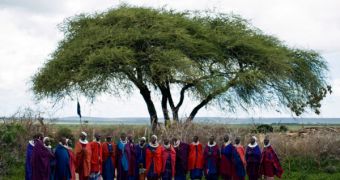Anthony Aristar, a professor of linguistics at the Eastern Michigan University, and Lyle Campbell, also a professor of linguistics and the director of the Center for American Indian Languages (CAIL) at the University of Utah have recently decided to organize the world's first-ever workshop featuring a large number of experts on defunct or nearly extinct languages and dialects. Between November 12-14, about 50 international experts will catalog endangered and dying languages, in a large database that could be used for reference in the future.
Chances are very high that, within a few decades, dying languages will completely die out, and that very few experts will struggle with the dialects. Most likely, only the most important extinct mother tongues, such as Latin and old Greek, will remain in use, while obscure African and Asian dialects will fade from memory. The goal of the Endangered Languages Information and Infrastructure workshop is precisely to prevent that from happening, the two professors say.
“A language is not just words and grammar; it is a web of history that binds all the people who once spoke the language, all the things they did together, all the knowledge they imparted to their descendants. When a language dies, it's just the same as when a species dies. You lose a part of the network of life, and you lose everything it could impart,” Aristar believes. “It's our responsibility as linguists to do what we can. Linguistics is a study of human cognition, what makes the mind tick, click, and work. When we lose, say, 50 percent of languages, we're losing 50 percent of human cognitive ability. It's an unspeakable tragedy,” Campbell says.
The two experts give the hearth-breaking example of Tommy George, an elder in his village, who told the Queensland Courier-Mail in June 2009 that his language “might die in the throat, but it stays alive in the heart.” He has not spoken his aboriginal language of Kuku Thaypan for more than three years, since his brother died. The two were the last people in the world to understand the dialect.
“The wisdom of humanity is coded in language. Once a language dies, the knowledge dies with it. Take for example medicinal plants. A tree bark may prevent cancer, AIDS, etc., but the name of the tree (and the associated knowledge) typically is lost when the language becomes extinct – a loss to all humanity,” Campbell says. “While a language is still living, there's always hope that it can be saved for posterity. If we don't do this work, there might come a time when all that is left is the cultures reflected by the 'big' languages such as English, Spanish, Chinese and Arabic,” Aristar concludes.

 14 DAY TRIAL //
14 DAY TRIAL //